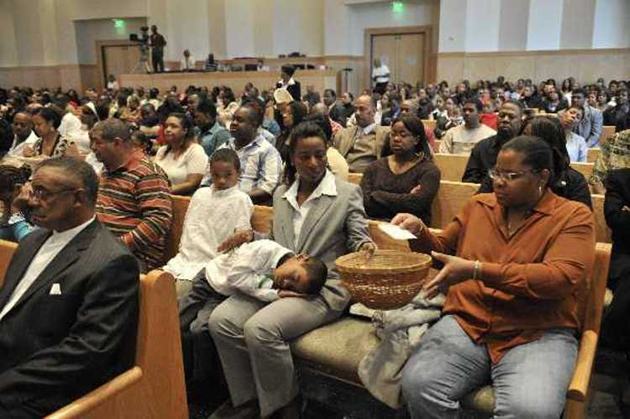Prosperity churches warrant taxation


Some churches are collecting huge amounts of money through tithes and pledges. The question now is whether to tax them or not?
Nick Mangwana View From The Diaspora
Recently the Commissioner of Taxes Mr Gershem Pasi made a ground-breaking statement. He said that religious organisations are going to be taxed. Zimra is now working on the legislative framework which will be ready by November.
Some people screamed that the Government of Zimbabwe was getting desperate. That may be so.
But is taxing churches a sign of desperation or just a sensible response to the proliferation of so-called prophets and pastors who are more celebrity than men of cloth?
A lot of money changes hands and some have dubbed them gospreneurs (gospel entrepreneurs). These churches, also known as Pentecostal or Charismatic, generate a lot revenue from gifts to merchandise to real estate. The normal modus operandi is to create a fiesta of sensations through music, charismatic sermons and in many cases choreographed stunts packaged as miracles. These stunts are obeying the law of diminishing returns, therefore more and more ridiculous even catching on the people’s vanities and social trends.
They have moved from prophesies of gold raining in Mt Darwin to penile enlargement of some Namibian citizen who was challenged in the trousers. As if that was not sensational enough, there were children born out of a three-day gestation period to alleged inflatable midriff flab deflating miracles, etc.
Yes, a fiesta of sensation indeed. But lest there is an accusation of picking on just one of these gosprenuers, how about Bentleys which were meant to bear other Bentleys on condition one is surrendered to “papa”? Ah lest we forget, the Reserve Bank was at sixes and sevens over a new phenomenon which gripped the nation during the period of austerity.
This was called “miracle money”. In the United States one of the key roles of the Secret Service beyond the protection of the President is also the protection of the currency. And they must have been baffled by this phenomenon in Zimbabwe.
These sensational happenings are the ones that have led to a lot of money leaving the pockets of the poor, middle class and the outlandishly rich. Of course add to that the stimulation and generation of emotional sensations of the Pentecostal experience underpinned by the expressed promises of prosperity.
Of course in many cases the only one prospering is the Man of God and his acolytes.
The organisation itself and the brand might also prosper, the props used for these rehearsed stunts may also prosper but that’s it.
The rest of the flock will never see prosperity. They are sold hope and keep hoping that one day it shall be their turn.
But since the advent of the new wave of prosperity gospel and the 60 000 that flock to their all nicely themed vigils, have the people prospered or the pastors have prospered? Have we seen less vendors or more vendors on the streets?
Is it not these same vendors who are being asked to plant seed money in the coffers of the church, much to the enrichment of the Bentley-driving clergy?
Is it such a big thing if the church and pastors are asked to contribute to the much depleted fiscus?
Without doubt, there is a spirit moving in the nation within the realisms of the Christian religion.
But is it the Holy Spirit or the capitalism spirit and in some cases even a spirit of criminality?
There is a big economic dimension in this and tax authorities have taken notice. And rightly so.
The sale of books, property development, sale of bandanas, wrist bands and other merchandise and bottles of oil are sold.
Why aren’t members of the pew asked to bring their own oil so that it can be prayed for? One will always wonder.
This is clearly a venture that clearly brings in incomes. Some are even charging for presiding over a wedding ceremony. It used to be just an honour. Not these days.
The Holy Book says the meek shall inherit the earth. Well this lot are not waiting any day longer. They are taking it over now. And by the way, meekness is not a trait that would describe them.
How can people even talk of meekness when to write or speak negative of them (not of God) would provoke such a militant backlash which is classified as righteous indignation by people that just need anger management. Ask the boys at Zim-eye website.
While the whole issue of charismatic churches, their money mongering and their lack of accountability uses emotions as a tool to coerce money, this debate needs a staid mind. Not only that, there is a fine-tuned public relations machinery that is unleashed to defend any challenge to the authenticity of the so-called miracles. Sleek advertisement and variants of product placement are part of the infrastructure. The revenue generated by these organisations will put a lot of corporations in Zimbabwe to shame. One of the basic principles of taxation is that those that produce wealth should pay taxation on it.
Are these organisations producing wealth? If the answer is yes then there is no debate.
One of the reasons churches were not paying taxes for all the years in most countries was that they were considered charitable organisations. Even in the UK where there are very stringent safeguards against abuse through the charity commission, churches are considered charitable causes. But the fact that they handle money from people and are exempted from paying taxes means they have to give receipts for any tithes and run a proper cashbook and should subject themselves to regulatory oversight. Money taken from the public cannot be used for an ostentatious lifestyle with impunity.
Of course in Zimbabwe once in while there is this or that donation but in most cases it’s aimed at promoting the brand of the leader rather than an altruistic cause.
In some cases even just to curry favour with the influential and political elites. That cannot be used as a reason not to tax them.
It is expected that based on their financial power, these churches will now respond by employing the best accounting minds available to make sure they pay as little tax as is possible. In so doing they will have elaborate accounting and investment schemes. That serendipitous benefit alone makes this endeavour worthy as it brings accountability to spiritually disguised materialism.
The world cannot have different rules for different people. The same thing that is called primitive accumulation when it comes to politicians is called a blessing windfall when it comes to religious organisations and yet in both cases it is just the fleecing of industrious, but desperate vulnerable people.
Some of these people are just gifted motivational speakers and others are all smokes and mirrors abracadabra who use the Bible as a prop. When the State decided not to tax churches they had the ascetic Marist Monk type at Kutama in mind. It was not meant for this new crop of flamboyant celebrity smooth talkers who move around with a coterie of no-nonsense body guards. Certainly they did not have these large property portfolios and are into housing development with rent paying tenants.
These should pay taxes. They are commercial entities and their leaders are business executives. After all their whole lifestyles says so.
These are people who exploit those that seek social advancement by advancing themselves whilst undermining that of the individual.
When any outsider points out how some of these people are thieves in religious habit, they are told that if these leaders steal from the flock then people have to wait for God to judge them.
But nobody wants to wait for God to enrich them in heaven. Why do their benefits be earthly and the penalties heavenly? One is dismissed with a pragmatic but convenient truth that if there are sinners in church, then there would be thieves in church. It is God’s prerogative to judge. The flock’s obligation is to pay God His money. Following the same argument then why not also render unto Caesar what belongs to Caesar?
It is clear that the current hands-off approach by the government when it comes churches and religious organisations is not sustainable when it is clear that there is abuse of the vulnerable and desperate going on.
Since churches have gone aggressively commercial, they have to be good corporate citizens. And good corporate citizenship is not optional altruism.
Religion cannot continue to be used as a tax and accountability avoidance smokescreen. One academic argued that churches offer an intangible service just like psychiatrists and therefore they should also subject themselves to some regulation and taxation. Self-enrichment and using God’s name to steal from the poor is more of a sacrilege than asking churches to be good citizens.
And good citizens do pay their taxes.







Comments